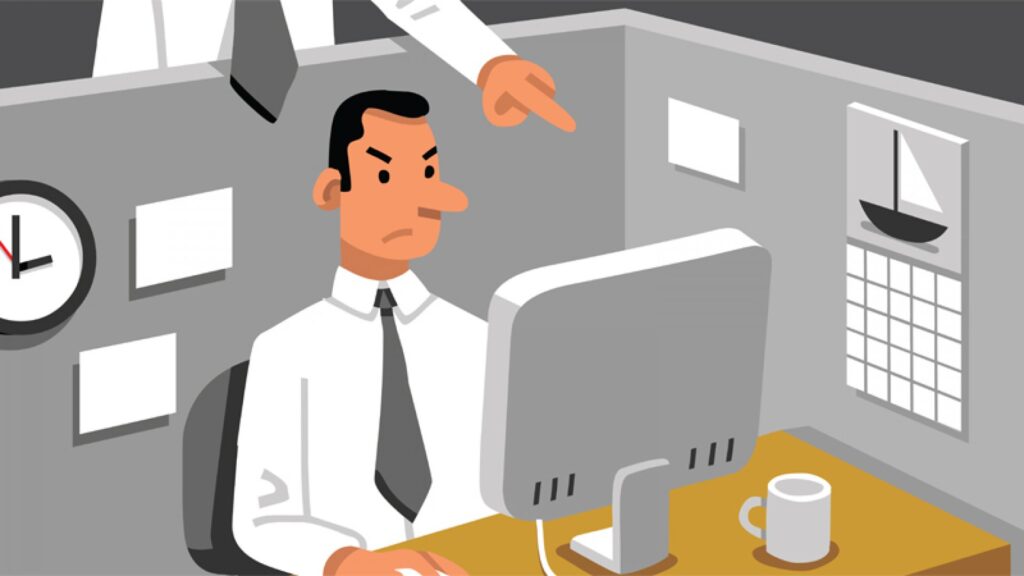Is Micromanagement an Appropriate Style?

Merriam-Webster’s Online Dictionary defines micromanagement as “manage[ment] especially with excessive control or attention on details.”

Dictionary.com defines micromanagement as “manage[ment] or control with excessive attention to minor details”.

The online dictionary Encarta defined micromanagement as “atten[tion] to small details in management: control [of] a person or a situation by paying extreme attention to small details”
Micromanaging can be beneficial in certain situations. However, the negative impacts are intense. Micromanaging a task does get the work done but it also decreases interest, creativity, attentiveness, performance, and productivity of an individual, employee, or department. Micromanagers usually have good intentions and assess every step of a process to avoid making mistakes. However, to making work perfect, their actions just drive people crazy.
In business management, the micromanagement style is when a manager closely observes, controls, and reminds the work of their subordinates or employees or is constantly monitoring the actions to ensure a positive outcome. Rather than giving instructions or guidelines, micromanagers tend to monitor and assess every step. This is considered to have a negative connotation and creates a feeling of lack of freedom in the workplace, which is bad.
Are you a micromanager?
While are a few micromanagers who recognize their micromanagement behavior, and try to keep it down, there are many micromanagers who are unaware of their actions. Friends, colleagues, or employees are either afraid or shy to let them know of their inappropriate behavior.

Take this quick survey to understand if you are a micromanager.
When you are working in a team or are a team lead, which is the most important role?
- To observe and correct team members whether they ask for help or no
- To observe what mistakes are being done, do the corrections by yourself and show how it is done by presenting a correct version of the task
- Schedule a meeting to discuss the scope of work, responsibilities, process, mistakes, corrections pros, cons, and required task information
2) When you are overloaded with work, you tend to
- Skip work
- Find a quiet place and work without being interrupted
- Divide the work so it can be finished
3) When a correction must be made in a task, you tend to
- Help your colleague in correcting their work
- Do the work for your colleague
- Sit down with your colleague and do the task together once so it is easier next time.
4) When you want to check the progress of work, you
- Send countless emails and reminder mails
- Call or chat on the phone or speak in person
- Wait for the progress report to be shared
5) When you want to assign a list of tasks, you tend to
- Assign tasks one by one
- Give all the tasks at once
- Discuss and then assign the task
6) You must submit a project report and want to add every detail so the project can be analyzed correctly. You tend to
- Make the project report and check it a hundred times before submitting (Reportomania)
- Make the project report and share it with your team and then submit it
- Make the project report with the acquired data and just submit the report
7) When executing a big project, you tend to
- Let the team contribute data so they learn, and use contributed data to create a bigger picture
- Make corrections to the teams’ contributions so the bigger picture can be as per your vision
- Work towards ensuring to correctly execute the project regardless of the contributions made
8) When a team member makes a decision without consulting
- You get irritated
- You check if there are any errors and back them up
- You are happy for the team member irrespective of the consequences of the decision.
9) Do you think micromanagement is a type of harassment?
- Yes
- No
- Maybe
10) Do you consider yourself a micromanager or have you ever been in a situation where you would have to micromanage the actions and decisions of another person?
- Yes
- No
- Maybe
Leave your answers in the comments section
- If you are a micromanager, learn to be calm, listen, and learn to trust. One of the most important skills of a working professional is knowing when to stop when to be involved, and when to take a step back.
- If you are a person who slightly micromanages tasks, it’s good that you recognized this behavior and can work towards improving it, so it does not become worse.
- If you are not a micromanager, good for you. Share this information and help friends and colleagues who you think might be benefitted from this information.

How to deal with a micromanager?
If you are reading this article in the hope to find a way as to how to handle the situation or the person, then please relax. Not to be dramatic but try listening to a nice song.
Listen to whichever song you like, or sit in silence, just be calm, be strong, do not be embarrassed. Make informed decisions.
If you are looking for ways to handle the situation, the most immediate remedy of dealing with a micromanager is talking to a friend. If the situation needs official attention, don’t hesitate to speak with a person who could help or even the HR.
Sometimes, just talking could lighten your heart and head but just be careful who you talk to and what you say.
Here are a few simple and easy tips on how to deal with a micromanager:
- Build trust
- Understand their point of view and decision making
- Forget about the expectations for a while. Just do a good job.
- Ensure humane treatment
- Do not gossip
Dear readers. Hope you got a few answers reading this article. Share your thoughts in the comment section below and let us know your experiences and how you dealt with them. It may help another person 😊





Very nice. Thank you for the information Sara.